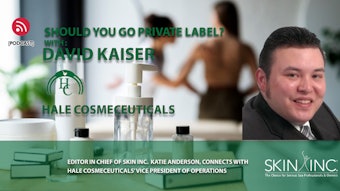
Many skin care professionals and facility owners fail to take advantage of the programs and benefits created as part of the government’s increasing emphasis on education. Although much of that emphasis is aimed at those entering the workforce or a profession, tax laws continue to offer write-offs for improving existing skills.
It matters little whether a esthetician is self-employed, a team member of her own skin care facility or business, or an employee—tax deductions and unique write-offs abound for anyone willing to look for them. In fact, under tax rules, many educational and training expenses incurred by a skin care business are both tax deductible by the business and, at the same time, tax-free to the recipients.
A skin care facility may deduct the cost of amounts paid for employee education and training—even amounts paid to others. It may also deduct the cost of education for the operation’s owners if the education or training maintains or improves skills required in the trade or business; or if the education is required by law or regulations for maintaining a license, status or job.
Naturally, expenses incurred to meet the minimum requirements of an individual’s present trade or business, or those that qualify them for a new trade or business, are not deductible. This is true even if the education maintains or improves skills presently required in the person’s current employment.
An employee itemizing personal deductions on her tax return can claim a deduction for amounts paid for work-related education. The deduction is the amount qualifying work-related education expenses plus other job and certain miscellaneous expenses is greater than 2% of the employee’s adjusted gross income. An itemized deduction reduces the amount of income subject to tax.
For the self-employed, the expense of qualifying work-related education—or continuing professional education—is deducted directly from self-employment income. This reduces the amount of income subject to both income tax and self-employment tax.
Although the cost of qualifying work-related education can be deducted as personal business expenses by an employee, it must pass at least one of the following two tests. It must be:
- Education required by an employer or by law in order to keep present salary, status or job. The required education must serve a bona fide business purpose of the employer; and
- Education that maintains or improves skills needed in the individual’s present work.
However, even if the education passes one or both of the above tests, it is not qualifying work-related education if it:
- Is needed to meet the minimum educational requirements in the individual’s present trade or business; or
- Is part of a program of study to qualify for a new trade or business.
Any individual can deduct the costs of qualifying work-related education as a personal business expense, even when it leads to a degree. The fact that an esthetician is already employed does not mean the minimum qualifying requirements have been met. If new educational requirements are established after someone has met the minimum requirements, that individual will be treated as continuing to meet those qualification requirements. In other words, expenses incurred in meeting the new requirements will be tax-deductible. A change in duties is not, however, a new trade or business.
Whether it falls under the heading of continuing professional education or is considered employee training, an esthetician can benefit from tax deductions for qualifying educational expenses. The business can claim a tax deduction for educational expenses, all the while providing its employees with a valuable, tax-free fringe benefit. Thus, everybody profits, especially the skin care facility that is gaining smarter, better educated and better trained employees.
The time to begin thinking about taking full advantage of federal income tax laws—and to benefit from the many tax breaks, deductions and credits available—is now ... not immediately before the tax return-filing deadline.
Mark E. Battersby has been providing professionally prepared editorial material for magazines, newsletters, reports and websites for more than 25 years. Each week, his topical columns are syndicated in more than 65 publications. He also writes monthly columns for 14 trade magazines and has authored four books.










